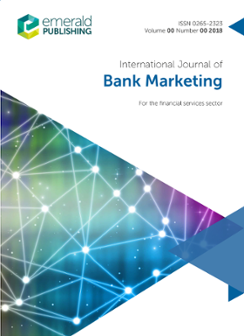客户对一线员工工作敬业度的影响
IF 6.9
3区 管理学
Q1 BUSINESS
引用次数: 0
摘要
目的本研究旨在运用资源守恒(COR)理论来解释客户支持、客户力量、客户导向和产品复杂性如何影响一线员工的工作敬业度。设计/方法/方法偏最小二乘结构方程建模(PLS-SEM)用于分析通过在线调查从1620名韩国保险销售人员收集的数据。结果表明,客户支持、客户力量和CO将带来更多的FLE工作参与度,而产品复杂性会负面稀释从客户支持中获得的工作参与度。实际含义本研究的结果表明,企业应该鼓励FLE分享他们在处理客户权力方面的经验和策略,并激发支持性的客户行为。由于复杂的产品,特别是金融产品,需要更多的解释和信息交流才能让客户理解它们,经理们可能会在培训计划中加入模拟、视频和角色扮演,向销售人员展示如何在尝试销售这些产品时与客户打交道。独创性/价值本研究调查了客户认知和情感支持对FLE工作参与的影响,并实证证明了客户力量的积极影响。本文章由计算机程序翻译,如有差异,请以英文原文为准。
Customer influence on frontline employee work engagement
PurposeThis study aims to employ conservation of resources (COR) theory to explain how customer support, customer power, customer orientation (CO) and product complexity impact frontline employees (FLEs) work engagement.Design/methodology/approachPartial least square structural equation modeling (PLS-SEM) was used to analyze data collected from 1,620 South Korean insurance salespeople using an on-line survey.FindingsResults show that customer support, customer power and CO will bring more FLEs work engagement, and product complexity negatively dilutes the work engagement gained from customer support.Practical implicationsThe results of this study suggest that firms should encourage FLEs to share their experiences and tactics in dealing with customer power and stimulate supportive customer behaviors. Since complex products, particularly financial products, require more explanation and information exchange for customers to understand them, managers might include simulations, videos and role-playing in training programs to show salespeople how to handle customers when attempting to sell these products.Originality/valueThis study investigates the effects of customer cognitive and emotional support on FLEs work engagement and also empirically demonstrates the positive effects of customer power.
求助全文
通过发布文献求助,成功后即可免费获取论文全文。
去求助
来源期刊

International Journal of Bank Marketing
BUSINESS-
CiteScore
10.70
自引率
18.90%
发文量
54
期刊介绍:
International Journal of Bank Marketing (IJBM) aims to publish papers that relate to the marketing challenges of financial services providers around the globe.
Preference is given to empirically-based research papers that expand on existing theories (or develop new ones) on customer behaviour in financial services settings.
In addition, the journal is interested in helping academicians and practitioners in the field to better understand the discipline of financial services marketing, and as a result review papers and thought pieces are invited for submission.
 求助内容:
求助内容: 应助结果提醒方式:
应助结果提醒方式:


